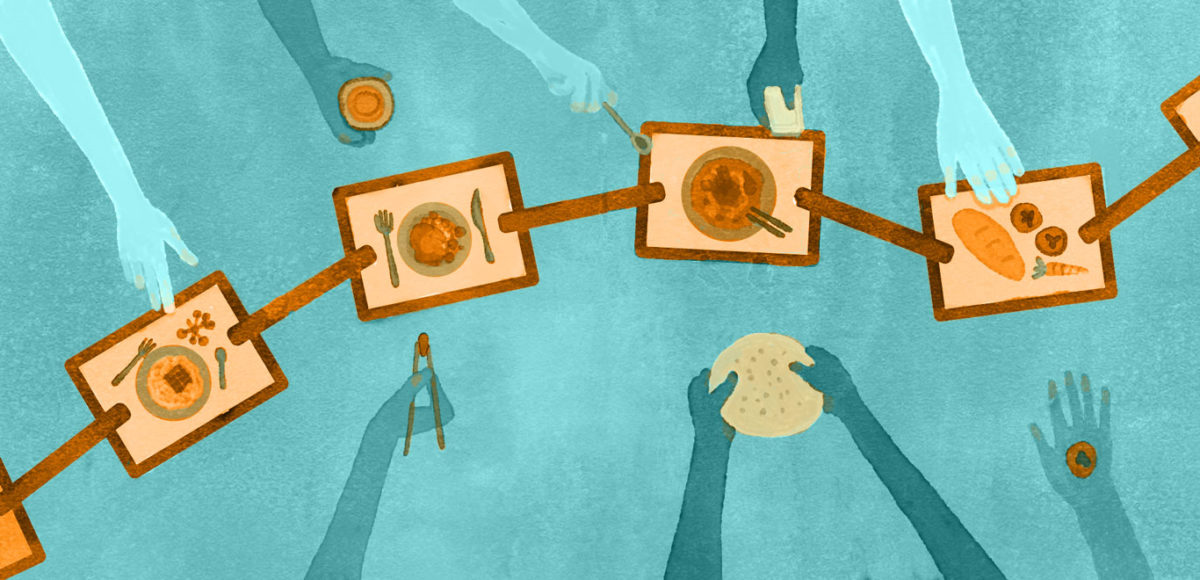by Jason Hsu
As a technologist-turned-
Going forward, we can never shun responsibility in understanding the positive and negative aspects of technology. It is the value of humanity and goodwill that are the centerpiece in technological development.
Blockchain technology has been proven to be of greater use in several fields. For example: cryptocurrency and E-commerce, healthcare record keeping, securities on crowdfunding, and smart contracts on digital rights. However, we probably never knew that blockchain can even help rescue refugees and save humanity.
The World Food Programme (WFP) agency from United Nations (UN) use blockchain technology for money transactions at refugee camps in Jordan. With blockchain technology, the refugees will be able to obtain their money directly without the assistance of third parties like banks. By way of this, blockchain improves financial literacy and also provides those refugees a secure payment for direct purchases.
The UN applies multiple blockchain solutions in its humanitarian projects. Furthermore, the organization has partnered with the World Identity Network (WIN) to create a blockchain-based digital identity system to help fight human trafficking.
The digital identity program has also been used in my country, Taiwan. The Executive Yuan (EY ) has formally adopted my policy advice and will launch the digital eID for our citizens. The replacement of the classic identity card with the digitalized eID was an significant policy to speed up the digital transformation of government in conjunction with the global community. Also, it is time for government departments to use the Internet to share information in a reliable and secure way, thus increasing the value of the documents and data security.
Clearly, technology is a double-edged sword with the ability to both liberate and enslave. We have to embrace it with liberal mindset, but handle it cautiously at the same time.
Mark Zuckerberg, CEO of Facebook, recently published an article on Washington Post addressing that the Internet needs new rules in four areas: harmful content, appropriate legislation, effective privacy, and data protection. Unfortunately, technology can solve our problems but it also spawned the new crises. We can easily use an AI application to generate fake news with a random picture and nonsense and it spreads 6 times faster than normal, “real” news. Clearly, technology is a double-edged sword with the ability to both liberate and enslave. We have to embrace it with liberal mindset, but handle it cautiously at the same time.
In the age of AI, there needs comprehensive guidelines as to use of data concerning ethics and morals. Countries like China and the USA engaging in hi-tech race must self-regulate and not overuse technology to the detriment of humanity. When it comes to AI, we need to consider the following: the use of AI does not create unfair and biased advantage for those who don’t; AI subjects should be able to challenge significant automated decisions concerning them and, where appropriate, be able to opt out of such decisions. AI operator organizations could consider providing affected AI subjects with a high level explanation of how their AI system works. Traceability should be considered for significant decisions, especially those that have the potential to result in loss, harm or damage and people should be informed of the extent of their interaction with AI systems.
Obviously, there are a lot of uncertainties to be resolved. Going forward, we can never shun responsibility in understanding the positive and negative aspects of technology. It is the value of humanity and goodwill that are the centerpiece in technological development. In all fairness, we all share the burden of protecting our future generation from being enslaved by technology and empower them to use it wisely for the greater good.

 | Technology, AI and ethics.
| Technology, AI and ethics.

